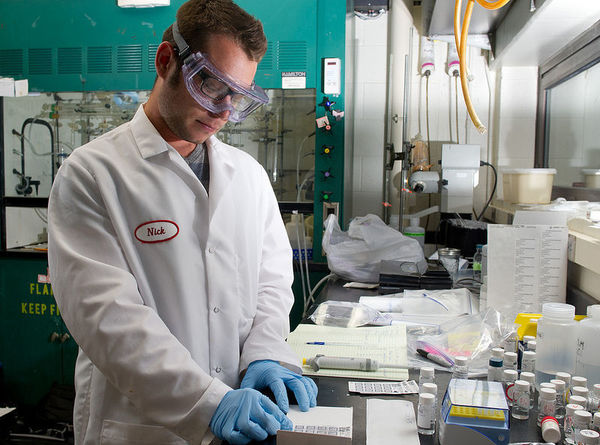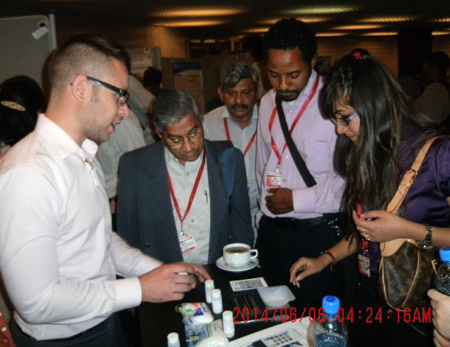
Nicholas Myers
Fourth year chemistry graduate student Nicholas Myers recently earned a $30,000 United States Pharmacopeia (USP) Global Fellowship for his work related to counterfeit drug detection. Myers was one of three recipients chosen this year in the international competition.
Myers’ research is related to the Paper Analytical Device (PAD) Project. Led by Marya Lieberman, associate professor of chemistry and biochemistry, the PAD project uses paper-based technologies to test for the presence of specific chemicals in various substances. The PAD technology is especially useful in low-resource settings where sophisticated lab equipment may not be available. The PADs were primarily developed to test for counterfeit medications in developing countries, but the technology has also been adapted for other uses, such as testing for iodine deficiency.

Myers demonstrates the saltPAD in Ethiopia
Myers’ role in the PAD project is to figure out how to make printed paper devices that can perform functions a chemist would normally need specialized lab equipment to complete. Some of his recent work has focused on making a piece of paper behave as a buret or a volumetric pipet to help measure tiny amounts of iodine that are added to iodized salt. Now, he plans to adapt this “lab on paper” to detect pharmaceuticals that do not contain the correct amount of medicine.
“At the beginning of my graduate career, I thought the application of the PAD research would be a steady force to keep me motivated as a student,” described Myers. “This summer we demonstrated our test cards at the Micronutrient Forum in Ethiopia, and many manufacturers came up to me asking where they could get their hands on the device. I wanted to do research were I could see real-world results and moments like that drive me to continue my work.”
Established in 1981, the USP Global Fellowship Awards Program promotes research in areas related to standards for medicine, food, and dietary supplements and their use. The fellowship is good for up to three years of research funding.
View the press release.
Originally published by at science.nd.edu on August 05, 2014.